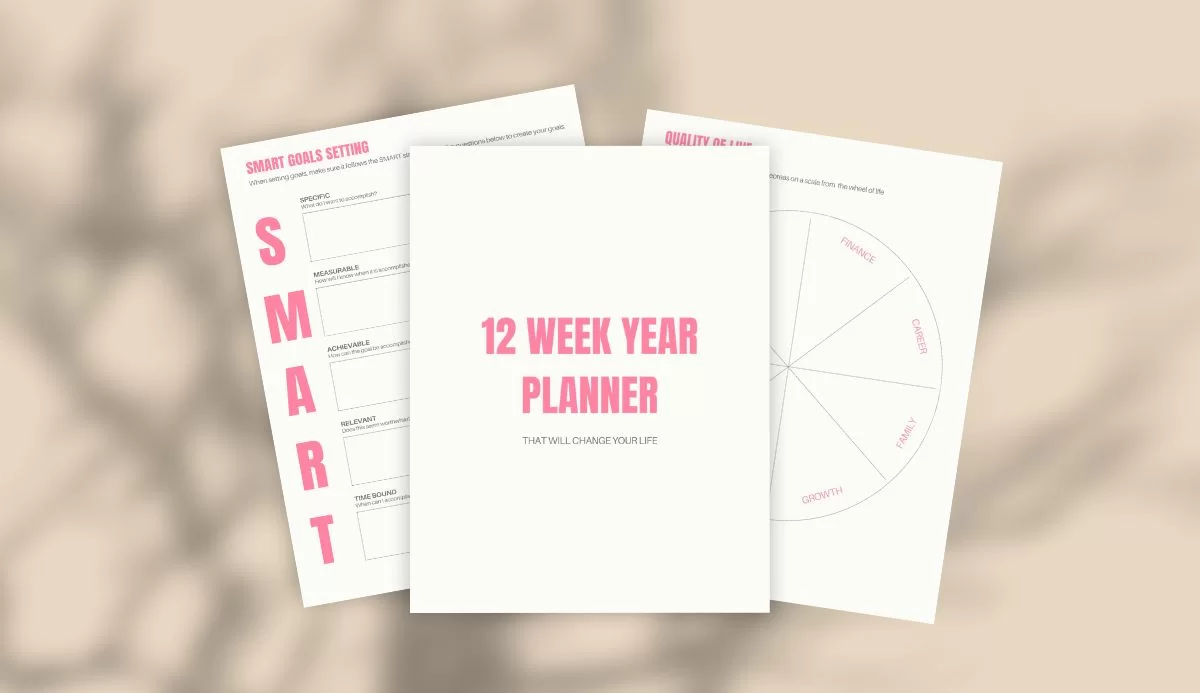
You know that feeling when your brain’s threat-detection system goes haywire, turning everyday challenges into catastrophic scenarios? We’ve all been there—heart racing, thoughts spiraling, convinced we can’t handle whatever life’s throwing our way. But here’s the thing: your mind is incredibly malleable, and with the right mantras, you can literally rewire those fear circuits. These aren’t just feel-good phrases; they’re scientifically-backed tools that can shift your nervous system from panic mode to resilience, and I’m about to show you exactly how.
“This Too Shall Pass” – Embracing Temporary Discomfort
When you’re drowning in anxiety and your brain’s catastrophizing like it’s training for the Olympics, “This too shall pass” might sound like the kind of empty platitude your well-meaning aunt shares on Facebook—but here’s the thing: this ancient Persian phrase isn’t just feel-good fluff, it’s actually backed by solid psychological science.
Research shows that reminding yourself of impermanence literally rewires your brain’s threat-detection system. When you’re stuck in fight-or-flight mode, your amygdala—that almond-shaped drama queen in your head—believes the current crisis is permanent. By consciously acknowledging that discomfort is temporary, you’re fundamentally telling your nervous system to chill out because this isn’t your new forever reality.
I’ve used this during panic attacks, job rejections, even brutal workouts, and it works because it’s true: everything changes, including whatever’s making you miserable right now.
“I Am Stronger Than My Fears” – Reclaiming Your Inner Power
The phrase “I am stronger than my fears” might feel like you’re lying to yourself when you’re hiding under your covers at 2 AM, scrolling through worst-case scenarios like they’re Netflix episodes—but here’s what neuroscience tells us about this particular mantra: it’s not about pretending you’re fearless, it’s about acknowledging that you’ve survived 100% of your worst days so far, which is actually a pretty impressive track record.
This mantra works because it shifts your brain’s focus from threat-scanning to evidence-gathering. When you remind yourself of past resilience—like that time you thought you’d never recover from your breakup but somehow managed to rebuild—you’re literally rewiring neural pathways. You’re training your prefrontal cortex to override your amygdala’s panic button, creating new default responses that serve your power rather than sabotage it.
“One Breath at a Time” – Finding Peace in the Present Moment

Building that inner strength is powerful, but sometimes you need something more immediate—something that works when your heart’s hammering and your thoughts are spiraling faster than a washing machine on the fritz. “One breath at a time” isn’t just hippie wisdom your yoga instructor throws around; it’s actually rooted in vagus nerve activation, which is your body’s built-in chill-out system that directly counteracts fight-or-flight responses.
Here’s how to harness this breath-based superpower when fear crashes your party:
- Four-count inhale through your nose: Imagine drawing power directly into your chest
- Hold for four counts: Let that oxygen work its magic on your nervous system
- Six-count exhale through pursed lips: Release the tension like deflating a stress balloon
This isn’t about perfection—it’s about giving yourself permission to pause, reset, and recollect you’ve got this.
“I Choose Progress Over Perfection” – Releasing Unrealistic Expectations
Perfectionism sets you up for failure before you even start—it’s like trying to hit a bullseye while someone keeps moving the target farther away, then criticizing your aim.
Here’s the thing: perfectionism isn’t actually about excellence—it’s fear wearing a fancy disguise, whispering that anything less than flawless isn’t worth doing.
When you choose progress over perfection, you’re choosing power over paralysis. Research shows that perfectionist thinking actually decreases productivity by 20% because we get stuck in analysis paralysis, endlessly tweaking instead of moving forward.
I’ve spent entire afternoons rewriting the same paragraph—sound familiar?
Try this: set “good enough” standards for 80% of your tasks, saving perfectionist energy for what truly matters. Small wins compound into massive victories.
“My Feelings Are Valid, But They Don’t Control Me” – Emotional Awareness and Freedom

Once you’ve given yourself permission to be imperfect, there’s another fear-busting truth to embrace: emotions aren’t the enemy—they’re messengers, and like any messenger, they deserve acknowledgment before you decide what to do with their message.
This mantra creates emotional awareness without emotional bondage. You’re validating your feelings—because dismissing them never works (trust me, I’ve tried)—while maintaining your power to choose your response.
Here’s how this plays out:
- Feel the fear, then fact-check it: “I’m terrified of this presentation” becomes “I feel scared AND I can prepare thoroughly”
- Name it to tame it: Neuroscience shows labeling emotions reduces their intensity by activating your prefrontal cortex
- Create space between feeling and action: You can feel overwhelmed without becoming overwhelmed behavior
You’re the CEO of your emotional responses, not their victim.
“I Have Survived 100% of My Worst Days” – Drawing Strength From Past Resilience
When your inner critic starts its familiar soundtrack of doom and gloom—convincing you that this current challenge will surely be your undoing—there’s one statistic that stops the spiral cold: you’ve got a perfect track record of surviving your worst days. That breakup that felt world-ending? You’re still here. The job loss that triggered panic attacks? You rebuilt.
The health scare that kept you awake for weeks? You endured, adapted, and moved forward.
This mantra isn’t toxic positivity—it’s evidence-based confidence building. Resilience research shows that recalling past victories literally rewires your brain’s threat-detection system, shifting from catastrophic thinking to solution-focused processing. You’re not just hoping you’ll survive this challenge; you’re recognizing a pattern of strength that’s already proven itself repeatedly.
“I Trust My Ability to Figure Things Out” – Building Confidence in Uncertainty
While your brain might prefer a detailed roadmap for every life challenge—complete with GPS coordinates and backup routes—the truth is that most of your greatest accomplishments happened without a master plan. You figured out how to traverse your first job, relationships, and countless curveballs through creative problem-solving, not perfect preparation.
This mantra reminds you that uncertainty isn’t your enemy—it’s where your adaptability shines. Consider how you’ve already mastered skills that once seemed impossible:
- Learning to drive despite initially confusing the gas and brake pedals
- Figuring out technology that didn’t exist five years ago
- Maneuvering social situations that felt terrifying at first
Your track record proves you’re resourceful, even when you’re winging it—especially then.
“Fear Is Just False Evidence Appearing Real” – Challenging Anxious Thoughts

Ninety percent of your worst-case scenarios never actually happen—yet your brain treats them like breaking news alerts demanding immediate panic. When you catch yourself spiraling into “what if” territory, recollect: FEAR stands for False Evidence Appearing Real. Your anxious thoughts aren’t fortune-telling—they’re just your overprotective brain doing its job poorly.
Next time anxiety whispers that you’ll definitely bomb that presentation or your friend’s silence means they hate you, challenge it like a skeptical detective. Ask yourself: “Where’s the actual evidence?” Usually, you’ll find nothing but assumptions and catastrophic predictions. Research shows our brains evolved to prioritize threats, making us excellent at imagining disasters but terrible at predicting them accurately. You’re not broken—you’re just human with an overzealous security system.
“I Am Exactly Where I Need to Be Right Now” – Accepting Your Current Journey
Even though your inner critic loves comparing your Chapter 3 to everyone else’s highlight reel, the truth is you’re exactly where you need to be in this messy, non-linear adventure called life. This mantra isn’t about settling for mediocrity—it’s about recognizing that your journey’s timing is perfect, even when it feels chaotic.
Consider these powerful reminders:
- Your detours often lead to opportunities you’d never have discovered on the “straight path”
- Every struggle you’re facing right now is building resilience you’ll need later
- The skills you’re developing in this season will serve your future self brilliantly
Research shows that self-compassion actually increases motivation more than self-criticism. When you accept where you are, you stop wasting energy fighting reality and start channeling that power toward meaningful progress.
“Courage Isn’t the Absence of Fear, It’s Acting Despite It” – Moving Forward With Bravery

Because courage has been misrepresented in countless movies as some fearless superhero charging into battle without breaking a sweat, most of us have bought into the myth that brave people don’t feel scared—which leaves the rest of us feeling like frauds when our hearts pound before taking risks.
Here’s the truth: courage isn’t about eliminating fear; it’s about recognizing that your dreams matter more than your discomfort. When you feel that familiar anxiety creeping in before a big presentation, job interview, or difficult conversation, remind yourself that you’re not broken—you’re human.
The most successful people I know still get nervous; they’ve just learned to interpret those butterflies as excitement rather than warnings, transforming their fear into fuel for forward momentum.
Conclusion
You’ve got these mantras now—your personal toolkit for when anxiety crashes the party uninvited. Recall, rewiring your brain’s threat-detection system takes practice, like learning to ride a bike while it’s on fire (okay, maybe not that dramatic). Start with whichever mantra resonates most, repeat it during calmer moments so it’s ready when chaos strikes, and trust that you’re building genuine resilience. You’re stronger than you think.
Comments
-
Pingback: How to Build Real Confidence
-
Pingback: How to Make Friends Easily
-
Pingback: How to Be More Positive
-
Pingback: How to Deal With Your Toxic Family
-
Pingback: 12 Anxiety Busters That Actually Work
-
Pingback: 5 Grounding Tricks for Anxious Moments
-
Pingback: 7 Emotional Tools Every Woman Needs





Pingback: 13 Ways to Build Resilience in Tough Times